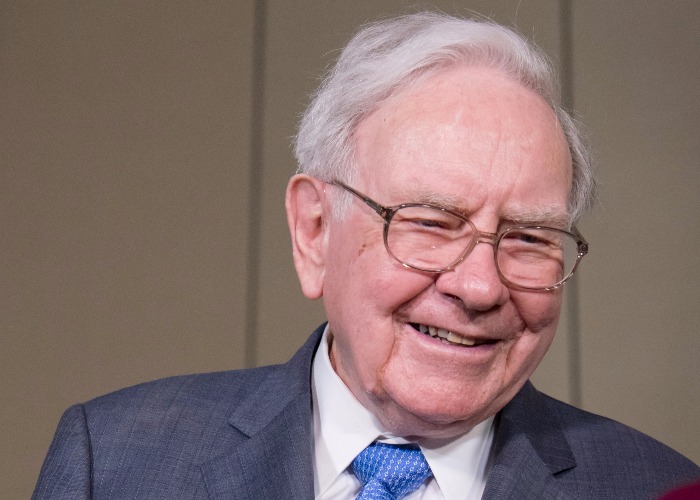Warren Buffett: wealth managers 'eat up capital like crazy'

Warren Buffett reveals who you shouldn't be investing with... and where to put your money instead.
Investment guru Warren Buffett has once again launched a tirade against expensive wealth managers and hedge funds.
The billionaire investor was speaking at the annual meeting of his company, Berkshire Hathaway, when he claimed that investment consultants are usually a “huge minus” for anyone who follows their advice.
“No consultant in the world is going to tell you ‘just buy an S&P index fund and sit for the next 50 years.’ You don’t get to be a consultant that way. And you certainly don’t get an annual fee that way,” Buffett said.
“The consultant has every motivation in the world to tell you, ‘this year I think we should concentrate more on international stocks,’ or ‘this manager is particularly good on the short side,’ and so they come in and they talk for hours, and you pay them a large fee. And then those consultants recommend to you other people who charge fees, which cumulatively eat up capital like crazy.”
Compare Stocks & Shares ISAs and sharedealing accounts at our investment centre
Do the stats back his claim?
Buffett has long taken a stance against paying fees to fund managers and investment advisors in an attempt to beat the market, recommending instead that people invest in cheap tracker funds.
Tracker funds are computerised with no fund manager to pay, so are a much cheaper way of investing. They simply track a market index such as the FTSE 100 or the S&P 500.
“It seems so elementary, but I will guarantee you that no endowment fund, no public pension fund, no extremely rich person wants to believe it. They just can’t believe that because they have billions of dollars to invest that they can’t go out and hire somebody who will do better than average,” says Buffett.
Back in 2006 the billionaire made a bet with hedge fund Protégé Partners that, over a decade, the cumulative returns of five fund-of-funds picked by Protégé wouldn’t outperform a Vanguard S&P 500 index fund, including fees.
As of the end of 2015 the S&P 500 index fund has a cumulative return of 65.7%, compared to a return of 21.9% on the hedge funds. The S&P has outperformed in six of the eight years of the bet.
Investors choosing robots over humans
It seems many investors agree with Buffett. Over the past year £10 billion has been invested in tracker funds, an increase of 40%.
The stats seem to back him up too. Over the past decade 75% of UK equity funds have under-performed in the stock market they are trying to beat, according to research by Standard & Poor’s.
In many cases you are paying a fund manager to do very little. Research by Morningstar found that one in five funds is a tracker fund in disguise, meaning you pay a fee for a manager who simply copies the market.
“Tracker funds continue to grow in popularity, providing investors with a low cost investment and reassurance that performance will closely mirror that of the chosen index,” says Andy Parsons, head of investment research at The Share Centre.
“Furthermore, tracker funds are easy to understand and monitor, so investors do not have to spend vast amounts of time checking and researching them. Unlike active funds, where investment strategies and approaches can vary over time, the investment objective of a tracker fund will always remain the same: to track an index as closely as possible.”
Regardles of which option you choose, shield your investments from the taxman with a Stocks & Shares ISA.
What you should read now:
Beginner's guide to stocks and shares ISAs
Comments
Be the first to comment
Do you want to comment on this article? You need to be signed in for this feature